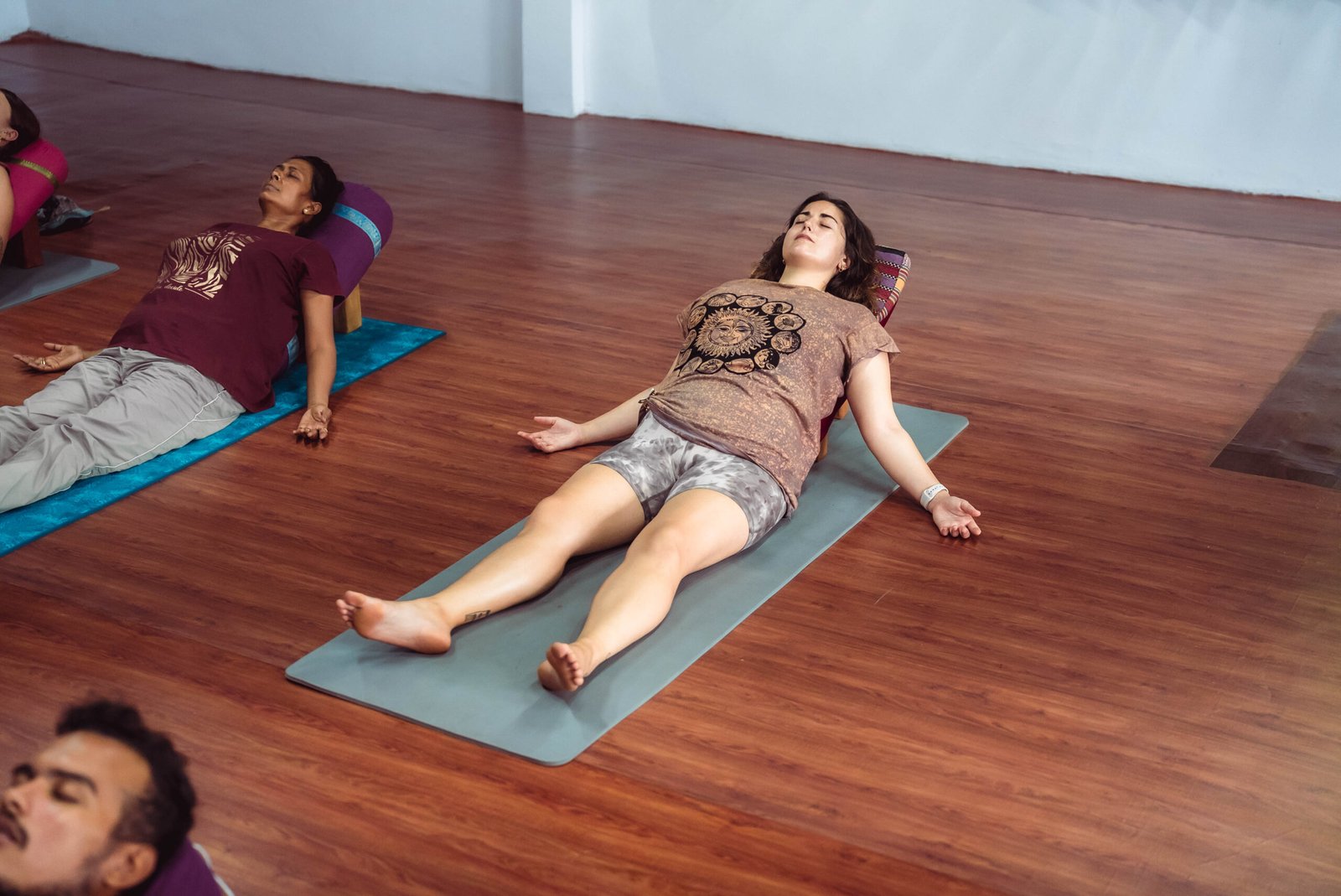Sleep has the same importance as regular exercise and consuming a balanced diet. But the effects of not getting quality sleep are seen even before noticing the impact of not doing enough exercise or eating well. With just a single night without sleep and your whole day is skewed. But what will happen when a sleepless night becomes a regular habit. Here are a few significant effects that you might experience because of insomnia:
- Memory problems
- Trouble in thinking properly
- Changes in mood
- Weak immune system
- Gaining weight
- Increased risk of heart disease
- Sleep and meditation
Have you ever thought about whether you are meditating while in your sleep? You might not have considered it. Because in sleep, you are not aware, and you are dull. But on some days after doing deep meditation, you wonder, thinking whether you were sleeping. It might look funny. Even if maximum deep meditation is one of the experiences that comes together with awareness and alertness, we often question the whole experience as deep rest is highly significant, and sometimes it is like a dream.
Sleep and meditation have some expected benefits, but one cannot substitute the other. We all must sleep, and we are required to meditate to get the best versions of ourselves, happy and healthy.
Meditation includes various mind and body techniques that can promote a state of recreation.
Researchers are highly interested in the perspective of meditation as one of the treatments for insomnia. Meditation for insomnia is highly affordable, low in risk and easy to execute. It is one of the striking options for those people who face difficulty with other medications and therapy.
According to studies, several kinds of meditation help improve insomnia and improve the quality of sleep for those who are having sleep issues. Mindfulness meditation mainly helps enhance the quality of sleep and decrease daytime disruption in people suffering
from chronic insomnia and adults. In the long term, these enhancements might be comparable to several effects seen from having sleep medication or any established techniques for treating insomnia. Like other sleep treatments, medicine for sleep aims to take the pressure off of falling asleep.
How do meditation and mindfulness affect your sleep?
Mindfulness and regular meditation assist in bringing in a relaxed mindset that is favourable for falling asleep. The reaction is called relaxation response or the opposite of stress response.
Falling asleep is a slow reduction in getting aroused, and insomnia is a state of hyperarousal. When you are under stress, depressed or highly anxious, your brain gets wired up, making it very difficult to fall asleep. As you advance, you propagate this tension as you start associating all kinds of worries with not falling asleep.
The state of recognition and awareness brought by doing meditation assists in reducing your psychological distress and enhances rumination and regulation of emotion. Research on people having fibromyalgia has found that mindfulness assists patients in the proper management of anger, depression and anxiety. These theorized that regular mindfulness might enhance sleep quality by offering patients mental resources for calming down their nervous system while preparing for their rest.
Biologically, meditation helps slow your heart rate and breathing rate and decreases the cortisol level. The relaxation response reduces stress-based inflammation and oxidative stress and enhances insulin resistance in the long term.
Even though the exact relation between meditation and sleep is being studied, still it appears that meditation incites lasting changes in your brain that might affect your sleep. Some studies on people who have experience in meditation found that they improve REM sleep and slow-wave sleep along with a few nighttime awakenings.
Meditation is a skill, and people who practice it regularly get relevant benefits. Daily practicing is optimal for seeing the immediate effect on your nighttime sleep. While some of the factors like minutes spent in meditation and quality of meditation are not easy to quantify, the benefits of doing meditation are seen more in people who are long term meditation practitioners.
Now you might be wondering how to meditate to get better sleep?
To lay down the groundwork for your meditation, you can start by arranging a calm environment and looking for a good position. When you are doing meditation before bedtime, this might include wearing loose pajamas, turning your lights off, and going to bed. Practicing healthy sleep hygiene and using techniques from cognitive-behavioral therapies for insomnia helps you get the most from meditation for insomnia. Most meditation methods instruct to look for a centre of focus. For insomnia, meditation soundtracks might use a soothing voice, music, and other techniques to induce relaxation.
Different kinds of meditation for improving the quality of sleep.
Meditation for insomnia mainly integrates components of breathing and mindfulness with a good amount of overlap between those methods. When you are new to meditation, you can initiate matters by talking to a good practitioner, downloading an app or checking videos online to get some relaxation exercise that works best for you.
Some of the common meditation types for getting good quality sleep are
- Mindfulness meditation: This includes centring on the present and welcoming thoughts and some emotions in an open-minded and non-judgmental manner.
- Guided imagery and music: Guided meditation for insomnia helps promote relaxation by asking meditators to imagine themselves in a calm place such as a forest or a white sandy beach. This is often achieved through video recording or any audio clip.
- Deep breathing: Deep breathing in association with engaging the diaphragm is most often utilized in combination with another kind of meditation for enhancing relaxation.
- Body scan meditation: Here, the participants are asked to focus on various parts of their body and note any sensation of tension or pain. This is in close association with progressive muscle relaxation, where participants are actively anxious, and then they relax in every successive muscle.
So, meditation can increase your sleep quality and based on the kind of meditation, you can decide the best time for doing meditation for a good quality sleep. You can get results a short time after doing meditation regularly.










